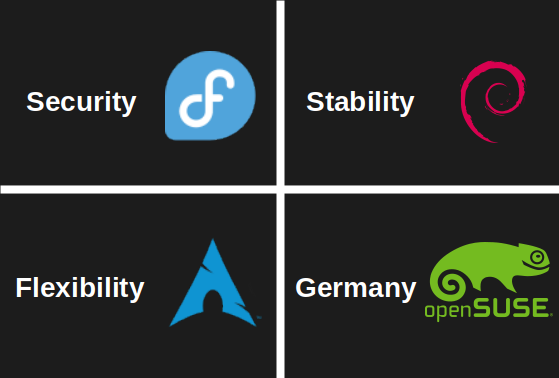this post was submitted on 13 Dec 2024
942 points (98.6% liked)
linuxmemes
21282 readers
475 users here now
Hint: :q!
Sister communities:
Community rules (click to expand)
1. Follow the site-wide rules
- Instance-wide TOS: https://legal.lemmy.world/tos/
- Lemmy code of conduct: https://join-lemmy.org/docs/code_of_conduct.html
2. Be civil
3. Post Linux-related content
sudo in Windows.4. No recent reposts
Please report posts and comments that break these rules!
Important: never execute code or follow advice that you don't understand or can't verify, especially here. The word of the day is credibility. This is a meme community -- even the most helpful comments might just be shitposts that can damage your system. Be aware, be smart, don't fork-bomb your computer.
founded 2 years ago
MODERATORS
you are viewing a single comment's thread
view the rest of the comments
view the rest of the comments

I'll never stop hating that debian is labeled stable. I'm fully aware that they are using the definition of stable that simply means not updating constantly but the problem is that people conflate that with stability as in unbreaking. Except it's the exact opposite in my experience, I've had apt absolutely obliterate debian systems way too often. Vs pacman on arxh seems to be exceptionally good at avoiding that. Sure the updated package itself could potentially have a bug or cause a problem but I can't think of any instance where the actual process of updating itself is what eviscerated the system like with apt and dpkg.
And even in the event of an update going catastrophically wrong to the point that the system is inoperable I can simply chroot in use a statically built binary pacman and in a oneliner command reinstall ALL native packages in one go which I've never had not fix a borked system from interrupted update or needing a rollback
Average Grandaddy Stable distro hater